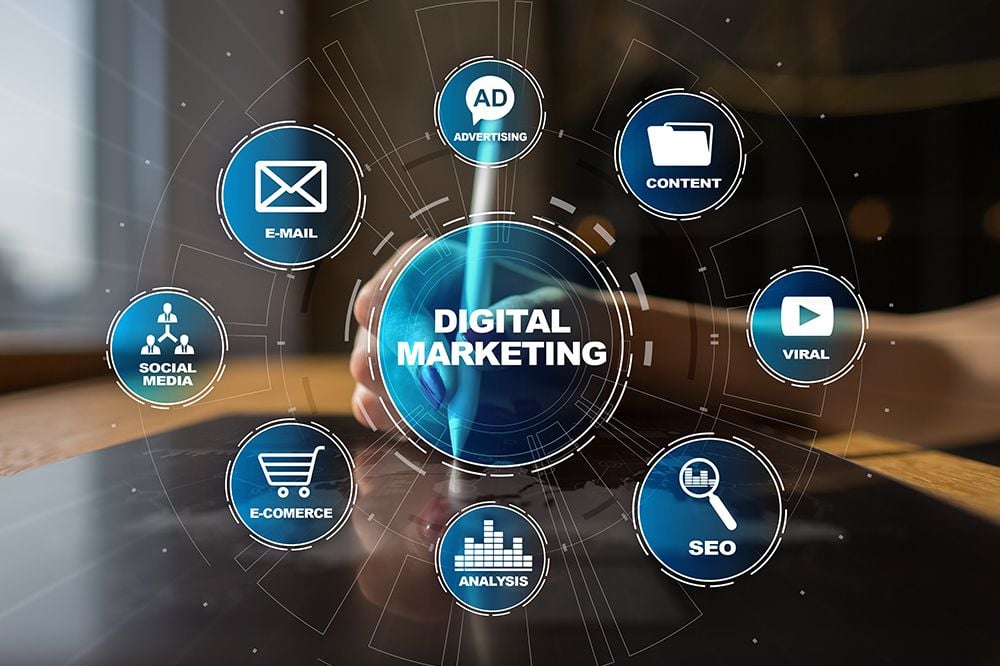Digital Marketing Demystified: Tools, Tactics, and Trends for Success
Introduction
In today’s digital age, where technology and the internet dominate our lives, businesses need to adapt their marketing strategies to stay ahead of the competition. Digital marketing has become a game-changer, allowing companies to connect with their target audience, build brand awareness, and drive conversions. However, understanding the tools, tactics, and trends that shape the digital marketing landscape is essential for achieving success. In this article, we will demystify digital marketing and explore the key tools, tactics, and trends that can empower businesses to thrive in the online world.
I. The Foundation of Digital Marketing:
To embark on a successful digital marketing journey, it’s crucial to establish a solid foundation. Here are the fundamental elements to consider:
- Defining Goals and Target Audience: Before diving into digital marketing, businesses must clearly define their goals and identify their target audience. Understanding what you want to achieve and who you want to reach will guide your strategies and help you tailor your campaigns effectively.
- Building an Engaging Website: A well-designed and user-friendly website is the cornerstone of any digital marketing strategy. It should reflect your brand identity, provide valuable content, and offer a seamless browsing experience. Optimize your website for search engines to improve its visibility and attract organic traffic.
II. Essential Tools for Digital Marketing Success:
1. Search Engine Optimization (SEO): SEO plays a vital role in driving organic traffic to your website. By optimizing your website’s content, structure, and keywords, you can improve your search engine rankings and increase visibility among your target audience.
2. Pay-Per-Click (PPC) Advertising: PPC advertising enables businesses to display ads on search engines and other platforms. By bidding on relevant keywords, you can drive targeted traffic to your website and pay only when a user clicks on your ad.
3. Content Marketing: Content marketing involves creating and distributing valuable and relevant content to attract and engage your target audience. This can include blog posts, videos, infographics, and social media content. Valuable content establishes your brand as an authority and helps build trust with your audience.
4. Email Marketing: Email marketing remains one of the most effective ways to nurture leads and engage with customers. By sending personalized and targeted emails, you can build relationships, promote your products or services, and drive conversions.
5. Social Media Marketing: With billions of users worldwide, social media platforms are ideal for reaching and engaging with your target audience. Develop a social media strategy to share content, run ads, interact with followers, and build brand awareness.
III. Effective Tactics for Digital Marketing Success:
1. Personalization and Targeting: Personalization is key to capturing the attention of your audience. Tailor your messages, offers, and recommendations based on user behavior and preferences. Leverage data analytics and customer insights to create personalized experiences that resonate with your audience.
2. Influencer Marketing: Collaborating with influencers who have a significant following in your niche can help you expand your reach and build credibility. Identify relevant influencers who align with your brand values and engage them to promote your products or services.
3. Video Marketing: Video content continues to dominate the digital landscape. Create engaging and informative videos to tell your brand story, showcase your products, or provide valuable insights. Videos capture attention and drive higher engagement rates, leading to increased brand awareness and conversions.
IV. Emerging Trends in Digital Marketing:
1. Voice Search Optimization: As voice assistants like Siri, Alexa, and Google Assistant become increasingly popular, optimizing your content for voice search is crucial. Focus on long-tail keywords and create conversational content that matches the way people speak when using voice search.
2. Artificial Intelligence (AI) and Chatbots: AI-powered chatbots are revolutionizing customer service and engagement. These virtual assistants can provide instant support, answer queries, and guide users through the sales funnel, enhancing the customer experience.
3. Interactive Content: Interactive content, such as quizzes, polls, and surveys, actively engages users and encourages them to interact with your brand. It provides valuable insights and helps to create a memorable user experience.
Conclusion
Digital marketing is a dynamic and ever-evolving field, but it doesn’t have to be intimidating. By understanding the foundational elements, leveraging essential tools, implementing effective tactics, and staying abreast of emerging trends, businesses can demystify digital marketing and harness its potential for success. Embrace the power of digital marketing to connect with your target audience, drive engagement, and achieve your business goals in the digital age.

